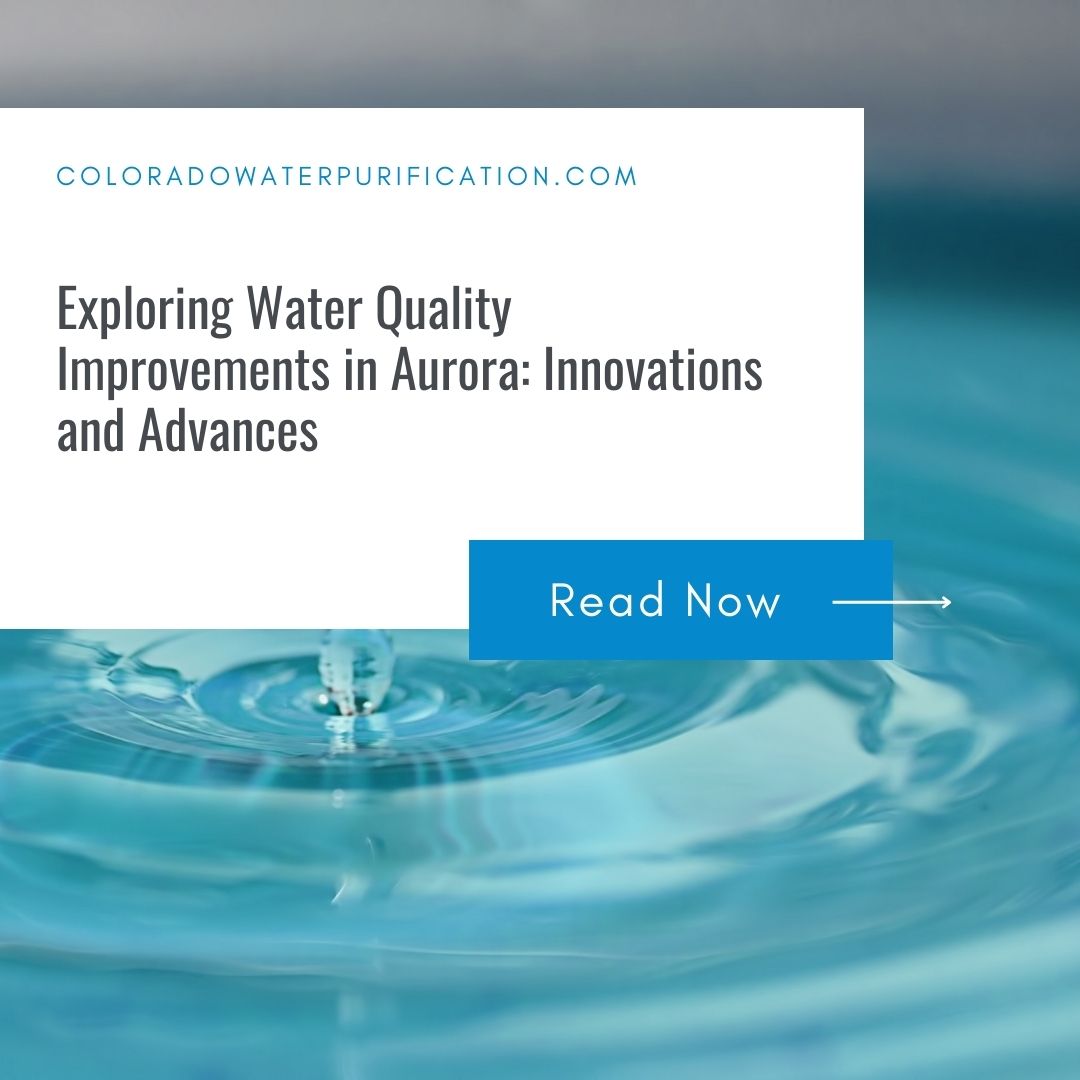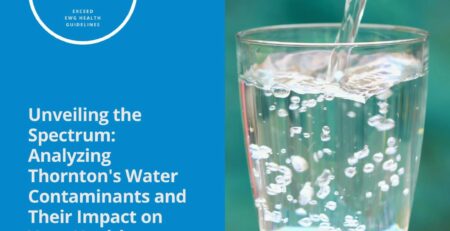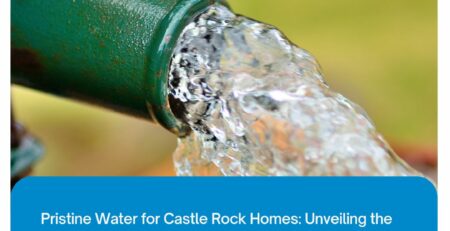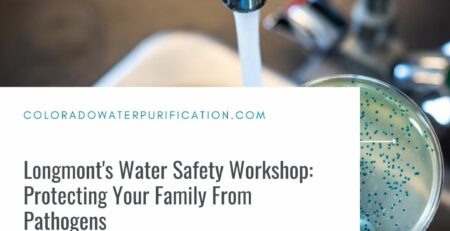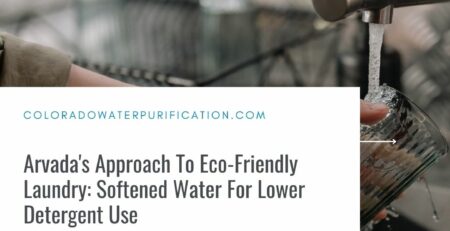Exploring Water Quality Improvements in Aurora: Innovations and Advances
Welcome, Aurora homeowners! Whether you’ve lived in this beautiful city for years or are a newcomer to the area, it’s no secret that water is an essential aspect of our daily lives. From drinking and cooking to bathing and washing, we rely on clean and safe water for countless tasks each day. As residents of Aurora, we are fortunate to have access to ample amounts of high-quality water. However, with challenges such as aging infrastructure and changing environmental regulations, it’s important for us as homeowners to stay informed about the innovations and advances being made in improving our local water quality. In this blog post, we will be exploring the latest advancements in water quality improvements in Aurora – from new technologies to sustainable solutions – so we can all have peace of mind knowing that our homes have access to safe and reliable water.
Introduction to water quality in Aurora – discussing current challenges and the importance of improving it.
Welcome to Aurora, a city surrounded by vast natural resources and natural beauty. Water is a crucial component of this natural environment, making it essential to understand the quality of the water here. Unfortunately, we face several challenges concerning water quality issues such as pollution, sediment accumulation, and depletion of aquatic life. That is why improving water quality in Aurora is of great importance, not only for our environment but also for the sake of preserving our health and well-being. Let’s explore the current challenges, learn about water quality, and work together towards creating a healthier world for us and our surroundings.
Highlighting the innovative approaches and technologies being used in Aurora to improve water quality, such as UV treatment and advanced filtration systems.
Did you know that Aurora, Colorado is leading the way when it comes to innovative approaches and technologies aimed at improving water quality? Using cutting-edge solutions such as UV treatment and advanced filtration systems, Aurora is ensuring that its residents have access to clean and safe drinking water. These innovative methods not only improve water quality, but they also help to reduce environmental pollution and minimize the use of harmful chemicals. Without a doubt, the city’s commitment to providing high-quality water to its residents is truly inspiring and sets a great example for other communities to follow.
In-depth look at the newly implemented stormwater management program and its impact on water quality.
Nowadays, we are seeing an increase in environmental awareness and a growing recognition of the importance of protecting our natural resources. In response to this, many cities and towns have implemented their own stormwater management programs to safeguard their waterways. These programs have been shown to have a positive impact on the quality of our water by reducing the amount of pollutants that are carried into our rivers, lakes and oceans. This has been achieved through a range of measures, such as the use of filtration systems and green infrastructure. The newly implemented stormwater management program is just one example of how we are taking a proactive approach to protecting our environment, and we can all feel proud of the role we are playing in creating a cleaner, healthier future for ourselves and generations to come.
Interview with a local expert on the benefits of green infrastructure for improving water quality in urban areas.
Green infrastructure can be of great help in promoting water quality in urban areas. This is according to our expert on the subject whose insights will definitely leave you informed. The use of green infrastructure techniques like rain gardens, green roofs, and permeable pavements can reduce the amount of rainwater that floods the already struggling sewer systems. This action significantly helps in avoiding sewer overflow into nearby water bodies. Our expert is passionate and is very knowledgeable on the subject. He offers perspectives that showcase the efficacy of green infrastructures, so if you’re interested in learning more about how we can effectively improve our water quality in urban settings, then you’ll find his insights very enlightening!
Examining the use of bioswales and rain gardens as effective and eco-friendly methods for reducing stormwater runoff pollution.
Many of us are concerned about environmental pollution, and for good reason. It affects not only our health but the planet as a whole. As cities expand, concrete and asphalt cover more and more land, reducing the ability of the earth to absorb rainwater and creating excess runoff. This runoff collects pollutants like oil, chemicals, and debris and rushes into local waterways, increasing the risk of flooding and damage to the ecosystem. So, what can we do about it? Bioswales and rain gardens are two eco-friendly techniques that can help. Thanks to thoughtful engineering and the use of carefully selected plants, these simple yet effective systems collect, filter, and direct stormwater away from the storm drains and back into the ground. They reduce flooding, pollutants, and erosion while increasing soil infiltration and plant growth. It’s a win-win for our communities and our environment.
Discussion on the role of community involvement and education in maintaining good water quality, including tips for residents on how they can contribute.
Many people might not realize just how important community involvement and education are when it comes to maintaining good water quality. The truth is, everyone can play a part! Whether you’re a parent, a business owner, or a concerned resident, there are plenty of ways to get involved. Volunteering with local organizations, joining your town’s environmental committee, and attending public meetings are all great ways to help. Additionally, small actions around your home can make a big difference, like not pouring chemicals down the drain and fixing any leaks as soon as they occur. By working together and staying informed, we can all do our part to protect our precious water resources.
Case study of a successful water quality improvement project in Aurora, highlighting its impact on both the environment and the local community.
Aurora, a city in Illinois, is a success story when it comes to water quality improvement. The city’s project involved reducing stormwater runoff by using green infrastructure, such as rain gardens, bioswales, and permeable pavement. The result was a significant improvement in water quality, which had a positive impact on not only the environment but also the local community. The stormwater management project not only reduced the risk of flooding and erosion but also created green spaces where the community could learn and engage with nature. The improvement in water quality also meant healthier habitats for fish and other aquatic wildlife. In sum, Aurora’s stormwater management project serves as an excellent example of how cities can balance development with environmental protection and community engagement.
Addressing common misconceptions about water quality improvements, such as cost and effectiveness.
When it comes to water quality improvements, there are a few common misconceptions that may be preventing many people from taking action. Some individuals believe that such improvements are simply too expensive or not effective enough, but the truth is quite different. For starters, the cost of water quality improvements can vary significantly depending on the type and scale of the project. In many cases, however, the long-term benefits of better water quality can easily outweigh the initial investment. Additionally, technological advancements have made it possible to improve water quality in ways that are more effective than ever before. By focusing on the most pressing issues and using the latest tools and methods, we can make a significant difference in the quality of our water resources. So don’t be deterred by potential misconceptions – instead, let’s work together towards a future with clean, healthy water for all.
Conclusion – summarizing key takeaways from the post and encouraging readers to be mindful of their own impact on water quality in their area.
As we come to the end of this post, let’s take a moment to reflect on the key takeaways we’ve discussed. While it’s easy to take water for granted, it’s essential that we are mindful of our impact on its quality. We learned that even small actions we take at home, such as properly disposing of chemicals and reducing water waste, can have a significant impact on our local water systems. By being conscious of our daily habits, we can help protect this vital resource for generations to come. So let’s work together to keep our water clean and safe for all to enjoy. Together, we can make a difference.
In conclusion, water quality in Aurora is a complex and ongoing issue that requires innovative solutions and collective effort from the community. From advanced filtration systems and UV treatment to green infrastructure and stormwater management programs, it is clear that there are numerous approaches being taken to improve the quality of our water. We have also learned that community involvement and education are vital in maintaining good water quality, and simple actions like properly disposing of household chemicals can make a big difference. It is heartening to see the success stories like the one in Aurora, where a large-scale project has not only improved water quality but also created a healthier and more sustainable environment for its residents. As we conclude this post, let us remember that our actions have a direct impact on our water sources, and it is up to all of us to do our part in preserving them. So the next time you visit a local park with bioswales or rain gardens, or opt for an eco-friendly car wash instead of using chemicals at home, know that you are making a positive contribution towards ensuring clean water for generations to come. Let’s work together towards a brighter future for our planet by being mindful of our own impact on water quality – because every drop counts.

